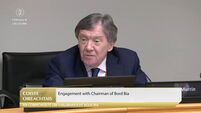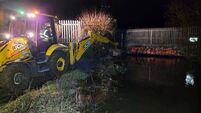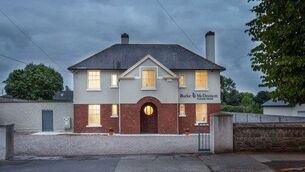Local poet selected for prestigious mentoring programme

Poet Cliona O'Connell
CLIONA O’Connell’s path from the technical world of engineering to the literary landscape of poetry might seem unusual, but for the Baltinglass writer, the two disciplines share more common ground than one might expect.
She has recently been selected for the Irish Writers Centre’s National Mentoring Programme, chosen from 354 applications nationwide alongside one other Wicklow writer, Layla O’Mara. The programme pairs emerging writers with established literary figures, and Cliona has chosen renowned poet Enda Wyley as her mentor.
“I’m delighted,” said Cliona of her selection. “As part of the programme, you get to select your mentor, so I have selected Enda Wyley. She has six books of poetry published and is a member of Aosdána. It’s great to have that kind of support.”
Before pursuing poetry full-time, Cliona spent years working as an engineer and software manager. While these careers might seem worlds apart from verse writing, she sees clear connections. “It’s almost like a puzzle at times. It’s almost like a technical problem,” she explains, describing elements of how poets work to construct their poems.
Her debut poetry collection was published in 2012, and since then she has built an impressive record of literary recognition. Her awards include the Patrick Kavanagh Award, Hennessy Literary Awards, and the Trócaire Poetry Ireland Award, among others. Her work regularly appears in respected publications like Poetry Ireland Review and Banshee.
After her first collection was published, Cliona pursued a Master’s degree in Poetry Studies at Dublin City University, attending evening classes. Cliona is currently working on a new collection that reflects growing environmental awareness. The poems explore themes of “not seeing in various ways, not seeing what’s in front of you” and carry “an ecological slant.”
“I would say they’re probably a little bit, well, maybe a lot informed by the lack of care we seem to have as humans around climate change,” she explains.
For Cliona, poetry serves as more than artistic expression. When asked if she considers poetry a form of activism, she responds: “Yes, absolutely. It’s a quiet form, but it is a form for sure.”
The National Mentoring Programme targets writers who are early on in their experience of being published, pairing them with authors who have been through the process many times and are well versed. For Cliona, this represents crucial professional development.
“The mentoring scheme is for people who have one or two books published and the mentors are people who have maybe five or six books published; it’s to get that feedback, that extra eye, it’s invaluable,” she explains.
She emphasises the importance of such opportunities for writers. “It’s such a solitary activity, it’s really good to get that little bit of validation,” she notes, referring to competitions, bursaries and programmes like the mentoring scheme.
Cliona has always been drawn to poetry’s “precision and concision.” Despite dabbling in short stories, she finds herself consistently returning to verse. “I always find that, at the back of it all, I’m always trying to write a poem, no matter what I start writing.”




